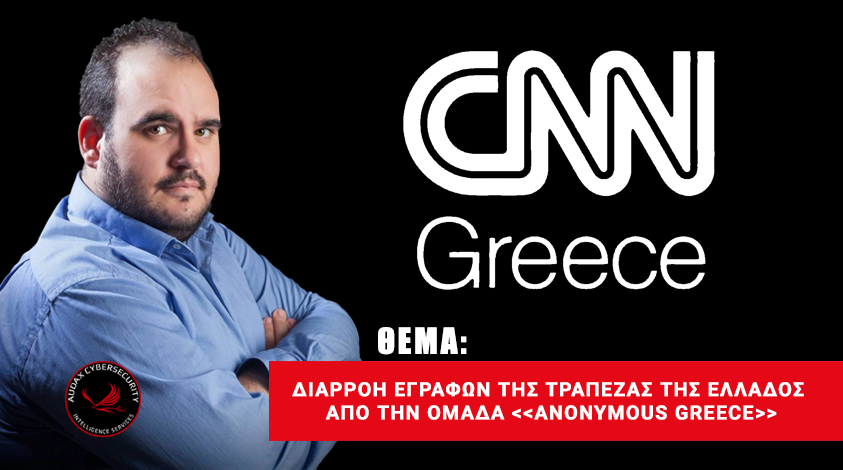The leak of Bank of Greece documents by the group "Anonymous Greece", and the hackers' threats that new attacks will follow, have raised questions about the security of public websites. Although the CBE notes that the files were data already publicly available on the Bank's website, Anonymous Greece claims new leaks will follow.
How likely are hackers to have access to important data that will later be leaked, they warned, and how much are other public service websites at risk? Theofanis Kasimis, an information systems security researcher at Audax Cybersecurity, answers all the questions on CNN Greece, making it clear that a large-scale attack is difficult to carry out.
"Anonymous had warned that they would take out secret documents of the Bank of Greece and Piraeus Bank, if I remember correctly, which, as it turned out, are not files that have been hacked by the BoG," said Kasimatis, who has downloaded the data posted by the hackers on Facebook and stressed that "at first glance it seems that these are not data that cannot be found in public balance sheets. They are documents which are not that revealing."
"I've downloaded the files but so far I haven't found anything classified. A skilled user with special knowledge of Google search can find these files."
But the researcher could not rule out the possibility that the hackers may indeed be in possession of revealing data that will be published in the coming days.
"Of course they have announced that they have a lot more data that they will upload from time to time, so we are waiting to see if it is indeed a hacking product or a product of deeper research on the internet," Kasimis said:
"We're waiting to see" if they actually have such evidence. Based on their preliminary announcements, "they have in their possession many giga data from various banks, perhaps even from ministries. They may well have. In this particular case, the files leaked by Anonymous Greece are not revelatory, they are not from hacking."
Concluding and asked if there is any reason to worry about other public services, Mr. Kasimis insisted that the shielding of government services is quite good and a big hit is relatively impossible.
"In Greece, huge steps have been taken in terms of security for public services, both in the banks Sure everything is locked and unlocked, but the state databases at the moment are quite protected and there are also public services that deal with the security of these systems, so it's hard to say that Anonymous and any Anonymous can cause a very big hit."

